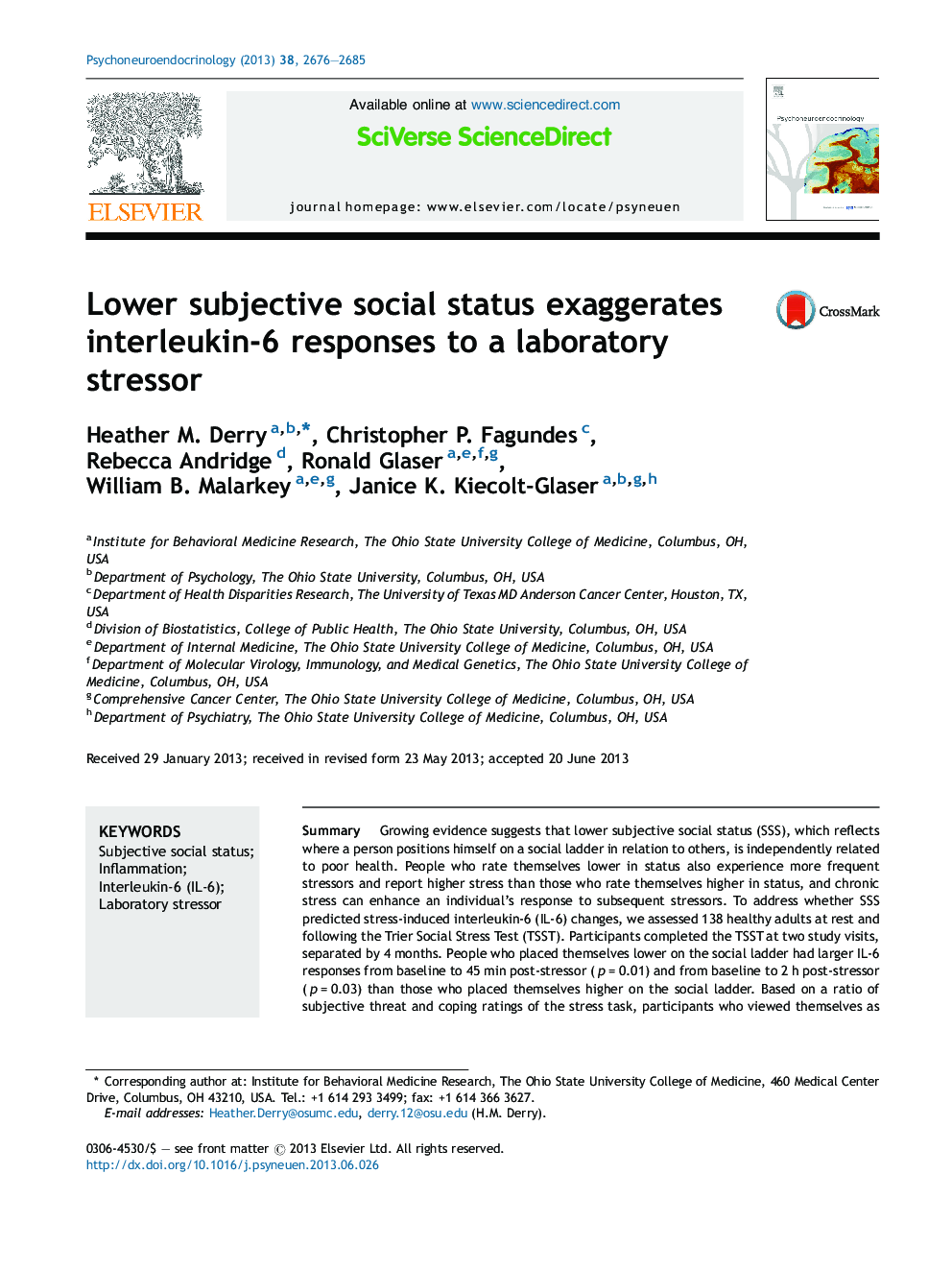| Article ID | Journal | Published Year | Pages | File Type |
|---|---|---|---|---|
| 10305805 | Psychoneuroendocrinology | 2013 | 10 Pages |
Abstract
Growing evidence suggests that lower subjective social status (SSS), which reflects where a person positions himself on a social ladder in relation to others, is independently related to poor health. People who rate themselves lower in status also experience more frequent stressors and report higher stress than those who rate themselves higher in status, and chronic stress can enhance an individual's response to subsequent stressors. To address whether SSS predicted stress-induced interleukin-6 (IL-6) changes, we assessed 138 healthy adults at rest and following the Trier Social Stress Test (TSST). Participants completed the TSST at two study visits, separated by 4 months. People who placed themselves lower on the social ladder had larger IL-6 responses from baseline to 45 min post-stressor (p = 0.01) and from baseline to 2 h post-stressor (p = 0.03) than those who placed themselves higher on the social ladder. Based on a ratio of subjective threat and coping ratings of the stress task, participants who viewed themselves as lower in status also tended to rate the speech task as more threatening and less manageable than those who viewed themselves as higher in status (p = 0.05). These data suggest that people with lower perceived status experience greater physiological and psychological burden from brief stressors compared to those with higher perceived status. Accordingly, responses to stressors may be a possible mechanistic link among SSS, stress, and health.
Related Topics
Life Sciences
Biochemistry, Genetics and Molecular Biology
Endocrinology
Authors
Heather M. Derry, Christopher P. Fagundes, Rebecca Andridge, Ronald Glaser, William B. Malarkey, Janice K. Kiecolt-Glaser,
